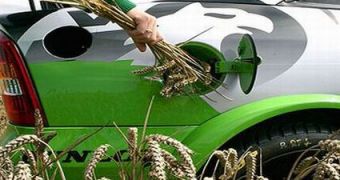An investigation carried out by specialists working with the World Wildlife Fund has shown that, contrary to expectations, the EU's biofuels industry might not be entirely sustainable.
Thus, a new report issued by said organization argues that, all things considered, EU's current legislation concerning biofuels is not strict enough to ensure that the presumably eco-friendly fuels used by member states are not in any way linked either to environmental destruction or to social exploitation.
“While biofuels are one way to cut our dependence on fossil fuels, EU regulations remain too weak to ensure that the biofuels we use in Europe – whether imported or domestically produced - are environmentally and socially sustainable,” explains specialist Imke Lübbeke.
The World Wildlife Fund concluded that the EU still has a long way to go until it can be sure that the biofuels produced and/or used by its member states are as sustainable as it gets after comparing its certification standards for biofuels with a so-called Certification Assessment Tool developed by the organization itself.
It was thus discovered that the EU's current standards concerning biofuel sources only focus on protecting regions documented to house high biodiversity and on cutting greenhouse gas emissions.
Social issues such as slave or child labor are, however, left out. What's more, the World Wildlife Fund maintains that said standards fail to preserve and improve water and air quality, and say nothing about the use of agrochemicals.
“A number of the standards, lacked or had inadequate criteria on issues such as waste management, compliance with labor laws and social legislation and paid insufficient attention to potential biofuel impacts on food security,” the World Wildlife Fund writes on its website.
“Many did not require restoration of the native vegetation of riparian and other important areas. Many also scored very low on key implementation measures such as transparency, auditor accreditation and the adequacy and strength of audit checks,” it adds.
In light of these findings, the organization urges that the EU revise its certification standards for biofuels and roll out new legislation ensuring that the supposedly environmentally friendly fuels used by its members states are indeed sustainable and not linked to human rights abuses.

 14 DAY TRIAL //
14 DAY TRIAL //